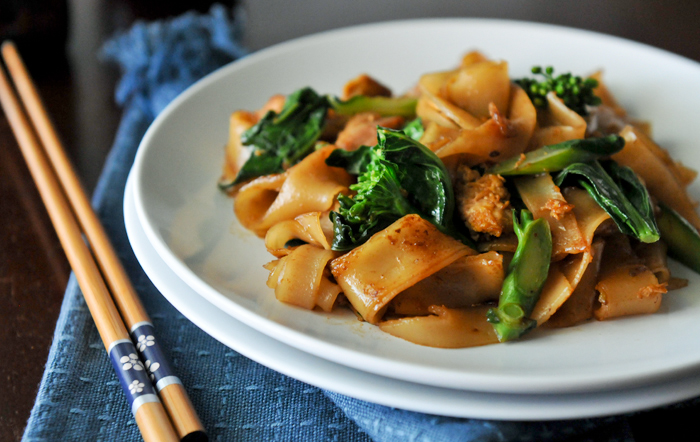
I am a foodie, which makes me an anomaly in my family. My foodie war stories are silly, but that doesn’t bother me, because each instance is a victory over the queasy constellation of issues that used to hover around eating. There were many things that caused tension between me and my mother when I was young—her fear and distrust of the outside world, her inability to make friends or allow us to have them, her fascination with fringe science and religious apocalypses—but food was the major fault line where the toxicity in our relationship spilled out.
My earliest memory is the Dixie cup in kindergarten with an orange shot of Kool-aid accompanied by a lightly-abraded animal cookie: a giraffe. I was terrible at tying my shoes and had only said my first word a year and a half before, but I was aware enough to know that the artificial flavor of this snack meant I was being fed something unnatural and illicit. And that I should feel guilty about it.
When I was in grade school, refined sugar was anathema in our house and only allowed in the form of Honey Nut Cheerios. My mother was obsessed with alternative diets and the virtue of unprocessed foods, which made her seem a little off in the eyes of the starchy, 1980s New England town I grew up in. Guilford, Connecticut, was the kind of deeply colonial place where, in order to participate in local politics, your family had to be one of the original signatories of the town charter from 1639.
Unfortunately, my mother had very little cooking expertise, so her substitutions of carob for chocolate and honey for sugar resulted in truly fearsome baked goods. Consequently, I have a reflexive aversion to scones and ranch dressing, and I can’t drink apple juice without being unpleasantly overwhelmed by hallucinatory notes of carrots, celery, and spinach. My brothers and I were also served orange juice with a slick of cod liver oil on top, an experience I can only compare to the distaste engendered by viewing certain types of distressing pornography.
My mother never used spices or sauces. Vegetables were boiled, as were hot dogs (until they ruptured and released the much-feared nitrates), and all meat was cooked until it was gray throughout and tasted mainly of fibrous tissue. Despite the fact that I would consume almost anything (including the usual villains like Brussels sprouts and liver), my mother persisted in trying to force me to eat frozen spinach that made me gag.
Although my parents never talked about money, I absorbed their anxieties about it. When I was seven, we would have had nothing to eat on Christmas if a friend of my Dad’s hadn’t arrived bearing dinner. That same year, I became convinced that the checks my mother wrote at the supermarket were illegal. It didn’t make sense that her signature should allow us to walk out with all those bags of groceries. Thereafter, whenever we were in the car and I heard a siren, I was terrified that they were coming after us, that the rhubarb and ginger she had spirited away would land us in jail.
My mother’s refrigerator was an alarming place: a solid wall of milky tupperware and fractal aluminum foil. Rather than investigate, my brothers and I would chose the safety of prepared food. When I got hungry at midnight, I could be found scraping out a can of kidney beans.
She never cleaned the fridge unless it was right before we were supposed to depart for holiday dinners at my grandparents’ house. My dad and my brothers and I would stand around in our badly-ironed button-down shirts, watching her fret about whether or not the shadowy, vacuum-sealed contents of this or that remainder were worth saving. Eventually, we learned to leave without her. She would arrive four hours later with no explanation.
In my twenties, I realized her delaying tactics were a species of social panic. I must admit that her anxiety was not totally unfounded. Formal dinners with my mother’s extended family were political affairs. Certain dishes—like the pearled onions and creamed corn—were deemed especially precious by my grandfather. If someone had more than their fair share, he was likely to push back from the table and stand up to thunder at them about their greediness like a Puritan judge in The Crucible.
For my mother’s father, food was a lever of power. Everything in the house was under his domain and he made sure we never forgot it. After my grandmother died when I was eleven and my parents divorced, we moved in with my grandfather, and I realized just how deep his mania ran.
By this point, my mother’s crusade against refined sugar had slackened a bit, and she would sometimes buy a half-gallon of Breyer’s vanilla bean ice cream for us, which I loved for the way it evaporated off my palate instantly.
Although my grandfather preferred his maple walnut ice cream, he would periodically check the carton of vanilla to ensure that we had not exceeded what he judged to be our daily recommended dosage. Such violations were likely to result in a scathing lecture about how ungrateful and sneaky we were, stealing in broad daylight. So we became adept at re-sculpting the ice cream to reproduce its original topography, like CIA operatives restoring a searched house.
When I was 15, my grandfather died, and we moved into a small condo. Gradually, my mother got weirder about food. She stopped eating in front of us, preferring to consume entire bags of potato chips late at night up in her bedroom, nestled in the collage of unread magazines that perpetually covered her bed. It’s hard to say if this ritualistic secrecy was due to hyper-vigilance from growing up in my grandfather’s house or her rebellion against the engine of graceful self-denial that had propelled her to Julliard to study dance.
I assumed that holidays would be easier without my grandfather, but they weren’t. My mother would start the day’s cooking optimistically, cheerfully chopping vegetables and tapping cups of flour level. Then, after a few hours, she would stop and sit down heavily at the table, lowering her head and covering her face with her hands. We knew what was coming and would try to deflect her by being desperately helpful in the face of her silence. When things had gotten sufficiently funereal, she would raise her head, look at us sourly, and launch into a tirade about how no one cared enough to make this into a real holiday. We weren’t a real family. We had no idea what she had suffered and sacrificed for us for twenty years. All me and my brothers cared about was ourselves. Her life was ruined and we didn’t give a damn.
Nothing averted this catalogue of her injuries and grievances. Once I started college and got an education in being pretentious, I would copy Mr. Spock’s superciliously-raised eyebrows and Socratically pick apart each of her accusations. Although this made her more bitter and sarcastic, she tended to give up sooner and storm upstairs, leaving us to our cans of kidney beans.
My mother never drank or did drugs, but her volatility and manipulativeness perfectly replicated an alcoholic family model. My brothers and I became exquisitely sensitive to her moods, but numb to our own emotions, since having feelings was a liability. Most of the time, she wittered on, being absent-minded and sweetly dotty, like June Cleaver on a touch of Thorazine, but she could turn on us with her next breath.
One morning she was driving me and my younger brother to school. She worked herself up into a rage over some frustration and stomped on the gas, doing 60 around the twisty back roads. I was 14 and he was 11, but we both understood immediately that it was up to us to talk her down before she hit the hairpin turn and killed us all.
I could predict my mother’s behaviors from a very young age, but I couldn’t make sense of them until decades later, when my therapist handed me a book about Borderline Personality Disorder, entitled Stop Walking on Eggshells. So I understand her pathology now.
However, despite decades of practice as a writer in being imaginatively empathic, my emotional intelligence still fails when it comes to the flavor of her dysfunction. I have no more idea of what it feels like to be inside her head than I know what happens to tannins in a bottle of pinot noir.
During the five-year custody battle after divorce, when I was about 12, my dad took me and my brothers out for Thai food. The noodle dish I ordered was so delicious that, after my first bite, I exclaimed in disbelief, You mean you can do this to vegetables?
Rather than being happy at discovering something new, I was angry that my parents had withheld such spices from me. In my mother’s psychic lineage, food was an illness to be managed, an objective correlative for anger, disappointment, and shame. In her world view, she was a voice crying out in the wilderness. In that moment, over a ten-dollar plate of pad see ew, I was her prophet.
My mother phones me obsessively. I answer every 10th call, which means I talk to her about once a month. I stick to this limit because if I listen to her too long, I believe a little less in the ability of speech to serve as a vehicle for emotion and reference to the world. It pains me to try to follow the thread of her thought, to strain after sentences that loom suddenly like tankers in a fog and then disappear, managing to avoid collision but never coming into port.
Our conversations also make me sad because she has a never-ending supply of anxieties about me. Cell phones are sapping my bones of calcium. Dry-cleaning chemicals are turning me into a zombie. My furniture is embalmed with carcinogens. No doubt they are, to some degree, but we’re all dying of something, just at varying speeds.
She never fails to bring up obscure deficiencies in my diet. I’m not getting enough brewer’s yeast, selenium, or seaweed. I want her to be less anxious, to have more pleasure in her life, and not worry perpetually about me. So I try to counter with recent things that make me happy: a pineapple-sage donut that rocked me back on my heels, a ginger cupcake with lychee-berry frosting and a saké-soaked pear in the center, an octopus salad.
She seizes on one dangerous element: the salad. Salads are treacherous. One of the people she used to do home care for got deadly sick after eating a salad. Her entire life, she worshipped the folic acid in leafy greens and now it has betrayed her. I will have to be careful, yes? I will reassure her? Her voice ends upward, on a questioning note.
 Simeon Berry lives in Somerville, Massachusetts. He has been an Associate Editor for Ploughshares and received a Massachusetts Cultural Council Individual Artist Grant. His first book, Ampersand Revisited (Fence Books), won the 2013 National Poetry Series, and his second book, Monograph (University of Georgia Press), wonthe 2014 National Poetry Series.
Simeon Berry lives in Somerville, Massachusetts. He has been an Associate Editor for Ploughshares and received a Massachusetts Cultural Council Individual Artist Grant. His first book, Ampersand Revisited (Fence Books), won the 2013 National Poetry Series, and his second book, Monograph (University of Georgia Press), wonthe 2014 National Poetry Series.

Comments are closed.